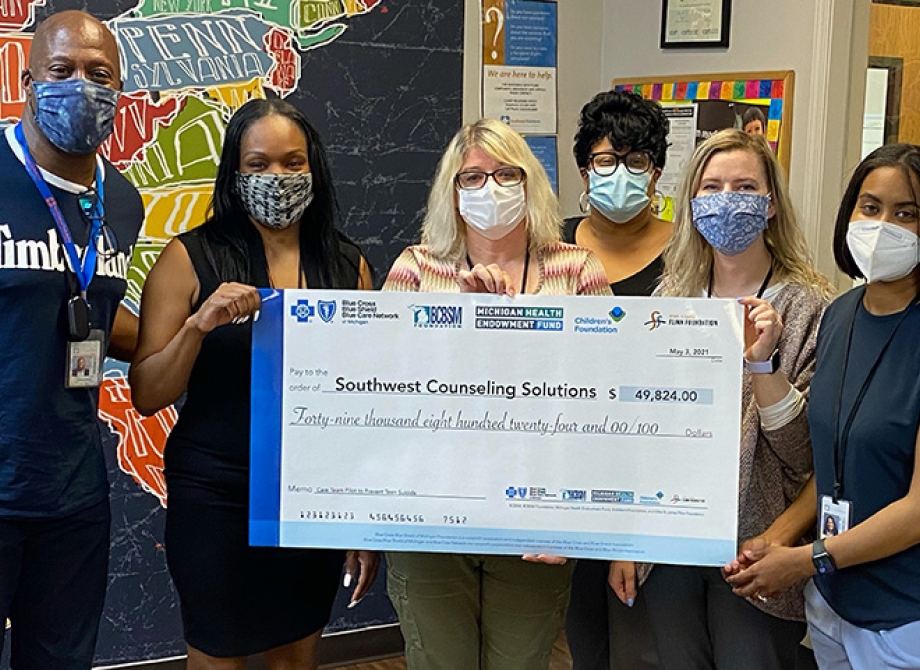
Staff members in Southwest Solutions’ Children, Youth and Families division celebrate a $50K grant award to implement an innovative and effective suicide-prevention model. Left to right: Anthony Graham, Marquita Felder, Susan Wiley, Gwenneth Marshall, Laura Dick, and Cieara Edwards.
Southwest Solutions Receives $50K Grant For Teen Suicide-Prevention Program
Southwest Solutions is one of nine organizations in Michigan receiving a grant for suicide-prevention services from a collaboration of funders comprised of Blue Cross Blue Shield of Michigan, the Blue Cross Blue Shield of Michigan Foundation, the Michigan Health Endowment Fund, the Children’s Foundation, and the Ethel and James Flinn Foundation.
“This collective funding opportunity was led by dedicated grant partners across the state and awarded to exemplary organizations delivering access to resources and interventions to those at risk of suicide,” said Audrey Harvey, Executive Director and CEO of the Blue Cross Blue Shield of Michigan Foundation. “The past year alone has illustrated the need for increased support of behavioral health and patient safety, and this initiative aims most importantly to reduce the number of attempts and the unfortunate lives lost due to suicide.”
The nine grants total $650,000, of which Southwest Solutions is receiving $50,000 to implement a wraparound model that has been shown to significantly reduce suicidal thoughts, attempts and deaths among adolescents at risk for suicide.
“This is a groundbreaking, evidence-based model, and we thank all of the funding partners for their support to help youth in our community,” said Sean de Four, President and CEO of Southwest Solutions.
The model is called the Youth-Nominated Support Team intervention (YST). It was developed by Dr. Cheryl King, a Professor in Psychiatry at the University of Michigan School of Medicine and Director of its Youth Depression and Suicide Prevention Research Program. In YST, the young person “nominates” (identifies) three to six caring adults who form a strong social support network and maintain regular contact with the youth to encourage adherence to a treatment plan and positive behavioral choices.
In Southwest Solutions’ implementation of YST, specially-training clinicians in our Children, Youth and Families division will provide psychoeducational counseling to the caring adults so they can wraparound the youth ongoing support and thus reduce the youth’s risk of suicide. The YST program will complement the outpatient therapy that they youth is receiving from our clinicians.
The suicide risk for youth served by our clinicians has doubled in the past year because of the pandemic and the dramatic increase in social isolation it has caused. The heightened anxiety and isolation have also resulted in a fourfold increase in post-traumatic stress scores for at-risk youth we serve. Thus, our implementation of the YST model is coming at an important and opportune time.
